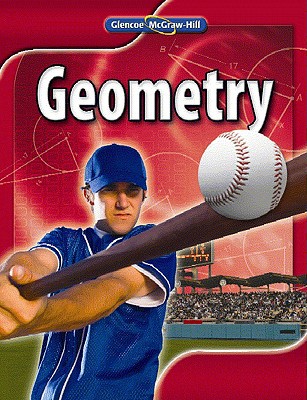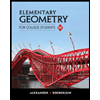
Concept explainers
(a)
To find: The ratio of the area of the two rectangles.
(a)
Answer to Problem 48PPS
The ratio of the area of the rectangles is
Explanation of Solution
Given:
The rectangle QRST is the similar to rectangle JKLM with the sides in the ratio 4:1.
Calculation:
Consider the area of the JKLM is,
Since, the ratio of JKLM and QRST is in the ratio 1:4.
Then,
(b)
To find: The dimension of each of the rectangle is tripled and what is the new ratio of the sides of the rectangles.
(b)
Answer to Problem 48PPS
There is no change in the ratio it is.
Explanation of Solution
Given:
The rectangle QRST is the similar to rectangle JKLM with the sides in the ratio 4:1.
Calculation:
Consider the area dimension of JKLM is tripled.
Consider the area of the JKLM is,
Since, the ratio of JKLM and QRST is in the ratio of the sides is,
Thus, there is no change in the ratio it is
(c)
To find: The ratio of the area of these larger rectangles.
(c)
Answer to Problem 48PPS
The ratio of the area is
Explanation of Solution
Given:
The rectangle QRST is the similar to rectangle JKLM with the sides in the ratio 4:1.
Calculation:
Consider the area dimension of JKLM is tripled.
Consider the area of the JKLM is,
Since, the ratio of JKLM and QRST is in the ratio 1:4.
Then,
Thus, the ratio of the area is
Chapter 7 Solutions
Geometry, Student Edition
Additional Math Textbook Solutions
Calculus: Early Transcendentals (2nd Edition)
Thinking Mathematically (6th Edition)
University Calculus: Early Transcendentals (4th Edition)
Basic Business Statistics, Student Value Edition
Introductory Statistics
A Problem Solving Approach To Mathematics For Elementary School Teachers (13th Edition)
- 5:00 PM Sat May 3 deltamath.com DeltaMath Given: ABBC and D is the midpoint of AC. Prove: ABD ≈ ACBD. ← Back to Home Deltamath Regents Review Week 3 Due: May 9 at 8:00 PM Grade: 97% Step Statement AB ≈ BC Reason 1 Given D is the midpoint of AC 2 BD BD 3 ADDC Calculating Volume (Mixed) Volume of Oblique Solids Volume, Density, and Unit 5 4 AABC is an isosceles triangle ZAZC Conversions (Level 1) Triangle Congruence Criteria try ZAD =/ DC Basic Triangle Proofs (Congruence Only - No CPCTC) Triangle Proofs (Reasons Only) Calculator Aseret Martinez Domi... Log Out Reflexive Property A midpoint divides a segment into two congruent segments The triangle has two congruent sides In a triangle, angles opposite of congruent sides are congruent An angle bisector divides an angle into two congruent angles B * A Ꭰ Note: the segment AC is a straight segment. 86%arrow_forwardLANDMARKS Stonehenge is a British landmark made of huge stones arranged in a circular pattern that reflects the movements of Earth and the moon. The diagram shows that the angle formed by the north/south axis and the line aligned from the station stone to the northmost moonrise position measures 23.5°. a. Find measure of arc BC. b. Is arc ABC semicircle? Explain. c. If the circle measures about 100 feet across, approximately how far would you walk around the circle from point B to point sarsen circle B station stone trilithons horseshoe 71° 23.5° farthest north moonrise Sarrow_forwardfind the value of each variablearrow_forward
- Name: Date: Bell: Unit 11: Volume & Surface Area Homework 2: Area of Sectors Directions: Find the area of each shaded sector. Round to the hundredths place. 1. GH 11 in 2. KL 20 ft H F 64 G L 119 M K 3. BA 6.5 cm 4. YZ 14.2 m B 23 X 87° Y Z 5. KL = 27.1 mm J 32 L X:360-32.1 K A-3 360 7. BD 18 cm E 136 B X=32.8 127.0 (271) A: 069.13 Amm² 19=2102.13 A-136 360.16912 A:300cm² A=96.13 6. PQ = 2.8 in P R 311° 8. WZ 5.3 km V = Z 108 W D 9. HK = 25 ft G H KO 26 X 10. SR 26 m = S 73 T R Gina Wilson (All Things Algebarrow_forward538 Chapter 13 12. Given: Points E(-4, 1), F(2, 3), G(4, 9), and H(-2, 7) a. Show that EFGH is a rhombus. b. Use slopes to verify that the diagonals are perpendicular. 13. Given: Points R(-4, 5), S(-1, 9), T(7, 3) and U(4, -1) a. Show that RSTU is a rectangle. b. Use the distance formula to verify that the diagonals are congruent. 14. Given: Points N(-1, -5), O(0, 0), P(3, 2), and 2(8, 1) a. Show that NOPQ is an isosceles trapezoid. b. Show that the diagonals are congruent. Decide what special type of quadrilateral HIJK is. Then prove that your answer is correct. 15. H(0, 0) 16. H(0, 1) 17. H(7, 5) 18. H(-3, -3) I(5, 0) I(2,-3) 1(8, 3) I(-5, -6) J(7, 9) K(1, 9) J(-2, -1) K(-4, 3) J(0, -1) K(-1, 1) J(4, -5) K(6,-2) 19. Point N(3, - 4) lies on the circle x² + y² = 25. What is the slope of the (Hint: Recall Theorem 9-1.) - line that is tangent to the circle at N? 20. Point P(6, 7) lies on the circle (x + 2)² + (y − 1)² = 100. What is the slope of the line that is tangent to the circle at…arrow_forwardCan you cut the 12 glass triangles from a sheet of glass that is 4 feet by 8 feet? If so, how can it be done?arrow_forward
- Can you cut 12 glass triangles from a sheet of glass that is 4 feet by 8 feet? If so, draw a diagram of how it can be done.arrow_forwardIn triangle with sides of lengths a, b and c the angle a lays opposite to a. Prove the following inequality sin a 2√bc C α b a Warrow_forwardFind the values of x, y, and z. Round to the nearest tenth, if necessary. 8, 23arrow_forward
- 11 In the Pharlemina's Favorite quilt pattern below, vega-pxe-frame describe a motion that will take part (a) green to part (b) blue. Part (a) Part (b)arrow_forward5. 156 m/WXY = 59° 63 E 7. B E 101 C mFE = 6. 68° 8. C 17arrow_forward1/6/25, 3:55 PM Question: 14 Similar right triangles EFG and HIJ are shown. re of 120 √65 adjacent E hypotenuse adjaca H hypotenuse Item Bank | DnA Er:nollesup .es/prist Sisupe ed 12um jerit out i al F 4 G I oppe J 18009 90 ODPO ysma brs & eaus ps sd jon yem What is the value of tan J? ed on yem O broppo 4 ○ A. √65 Qx oppoEF Adj art saused taupe ed for yem 4 ○ B. √65 29 asipnisht riod 916 zelprisht rad √65 4 O ○ C. 4 √65 O D. VIS 9 OD elimiz 916 aelonsider saused supsarrow_forward
 Elementary Geometry For College Students, 7eGeometryISBN:9781337614085Author:Alexander, Daniel C.; Koeberlein, Geralyn M.Publisher:Cengage,
Elementary Geometry For College Students, 7eGeometryISBN:9781337614085Author:Alexander, Daniel C.; Koeberlein, Geralyn M.Publisher:Cengage, Elementary Geometry for College StudentsGeometryISBN:9781285195698Author:Daniel C. Alexander, Geralyn M. KoeberleinPublisher:Cengage Learning
Elementary Geometry for College StudentsGeometryISBN:9781285195698Author:Daniel C. Alexander, Geralyn M. KoeberleinPublisher:Cengage Learning

